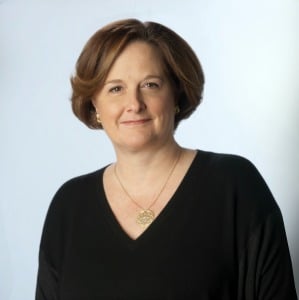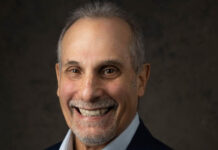
The sticky topic of more radio deregulation was discussed at the Wednesday morning Radio Show breakfast. Many of radio’s big companies support more deregulation because they say they need to own more stations to compete with Facebook and Google (iHeartMedia is opposed). There are others in the industry who believe more deregulation will not improve radio’s position with the advertisers one bit, especially when one of radio’s biggest problems is that too many stations still drop their rates to compete with other radio stations in a market. Or, they will offer discounts on under-performing stations in order to get a larger share of a buy.
Beasley Media CEO Caroline Beasley said she supports more deregulation. “It’s good for broadcasters. The NAB commissioned an independent firm to conduct a study and the results showed that as you grow within a certain market you can take advantage of certain synergies, invest more in content, technology, and service to communities. Deregulation is very important in this day and age for radio.”
Hubbard CEO Ginny Morris is in a tough spot. She volunteers a ton of time with organizations like the NAB and has been friends with all of the CEOs she’s served with for many years. However, you can tell she’s struggling with the deregulation issue, especially in major markets. “Our company has been on the fence about deregulation. It (what was mentioned in the NAB commissioned study) was supposed to happen the last time we deregulated and it didn’t. As for the top 50 markets we’re not convinced. We do need relief in the smaller markets. I’m skeptical about deregulating more. What you will see if it does happen is a whole lot of swapping.”
Townsquare Media co-CEO Dhruv Prasad, who’s all in on more deregulation, agrees that more deregulation will lead to greater format diversity. “That’s important for us in a world where we compete with Siriurs, Pandora, and Spotify. But, if there are no changes made to the rules it’s not a disaster scenario. Radio will continue to focus on local. We’ll continue to focus on data and attribution, those are game changers. There are plenty of growth catalysts and stable days ahead for radio. The industry won’t go away. There are bright days in front of us.”









From here:
I suggest that Republicans wanting deregulation in order to cut government expense is a poorly-constructed and shameful ruse. It’s not less expense they want – it’s more control.
Tax cuts for the larger corporations is a done deal. None of those cuts represent a cost-cutting or a cost savings as the Republican leadership would have citizens believe.
But, that’s just from here.
Radio is a mass medium. Get as much mass listening to your station as you can. There are only a select successful formats for a reason. To believe that if you add more format choices you will increase billing is poor thinking. There is a reason why each group has the same handful of formats. That’s where the people (mass) are. Deregulation was so succesful the first time let’s do it again! Those that propose deregulation weren’t to successful the first time. Ask yourself why do they want to do it again?
Everyone seems to think deregulation is coming from big radio, but they leave out an important group: The politicians. For 8 years, under Democratic rule, there was never any talk about deregulation. Now that Republicans are in charge, they want to deregulate. Why? Because the American people voted for less government. They believe they have a mandate for that. Less government means fewer government workers, and that means less government expense, and money that can turned back in tax cuts. They have to pay for the tax cuts, and fewer lawyers at the FCC is a way to do it. There is a direct connection between the vote you cast and broadcasting deregulation. If you don’t like it, there’s really only one way to stop it.
Morris exactly captures my sentiments on radio deregulation. In the biggest markets, how will letting the largest radio companies dramatically increase their size really improve their bottom line against other media, by jumping from 5 FMs up to potentially 10 FMs…plus unlimited AMs? Even in the largest markets — say, the top ten markets — that means those communities go from effectively a ‘three or four-company town’ to a ‘one or two-company town’. To a lot of us, that sounds very much like ‘monopoly’ — the very thing that many in the radio industry accuse the social media and other competitors of…
There is this incredible fantasy supported by large radio companies that more deregulation will be good for those corporate bodies – and it may very well be the case.
I mean, there is nothing like less competition in any field that doesn’t bode well for the owners of the larger pieces.
That services to audiences and advertisers will continue to be limited and, in many cases, discontinued is a known, demonstrated and expected result.
Big Owners drool. Lobbyist salivate. Legislators await opportunities to be of service.
Audiences and advertisers can go screw themselves.
Nothing personal – it’s just biznizz.
Ms. Morris is absolutely correct. 50 mile signals mean that radio is local by Federal law! She is doing it right and she has signed up Drew Horowitz, one of the industry’s great leaders as her CEO.